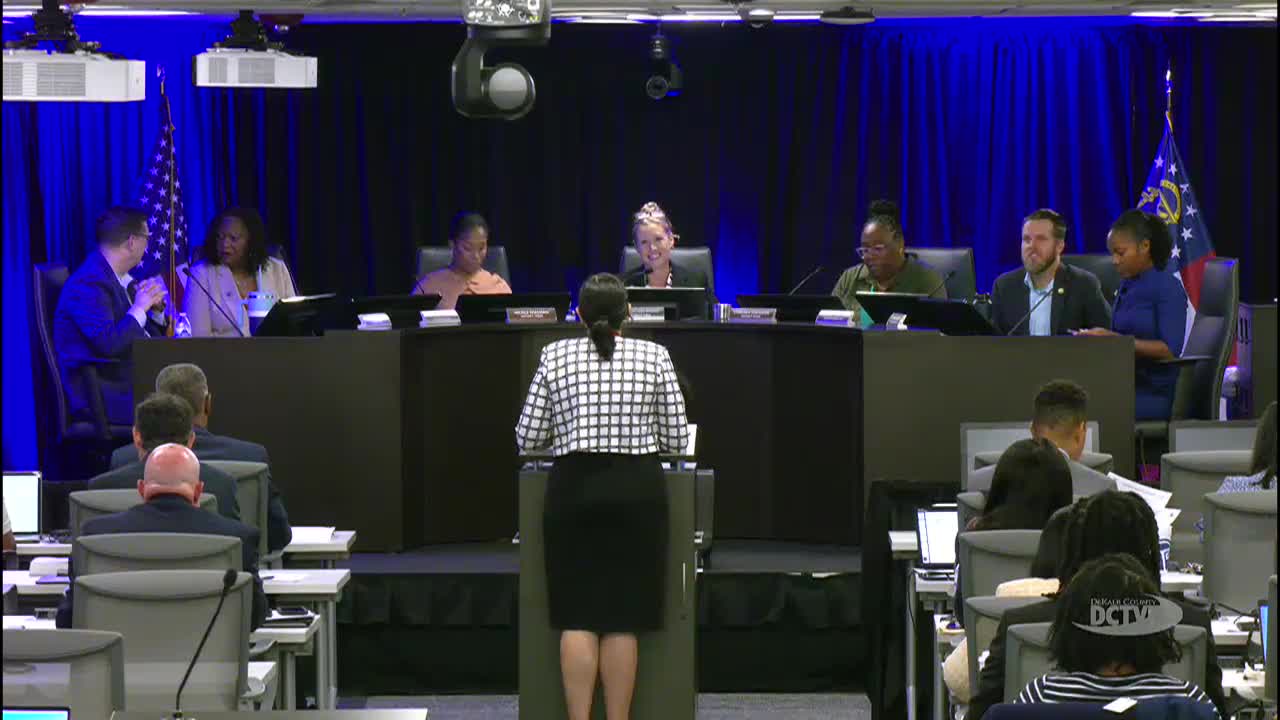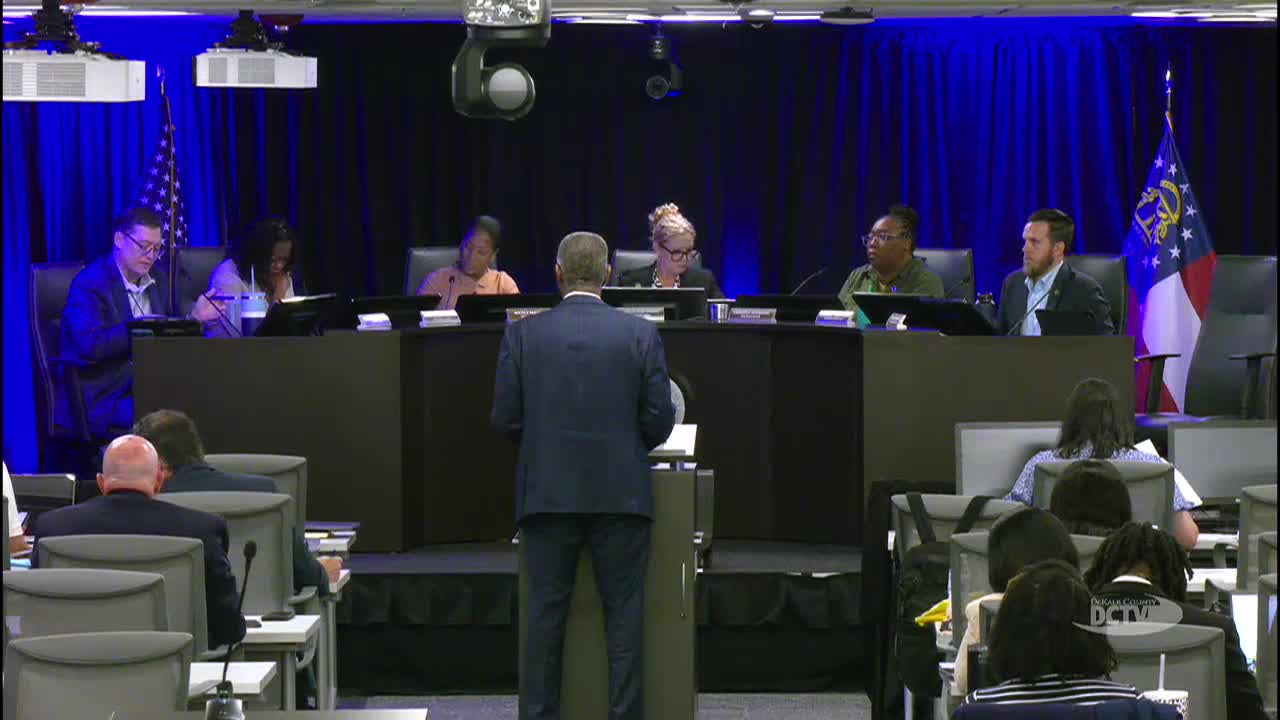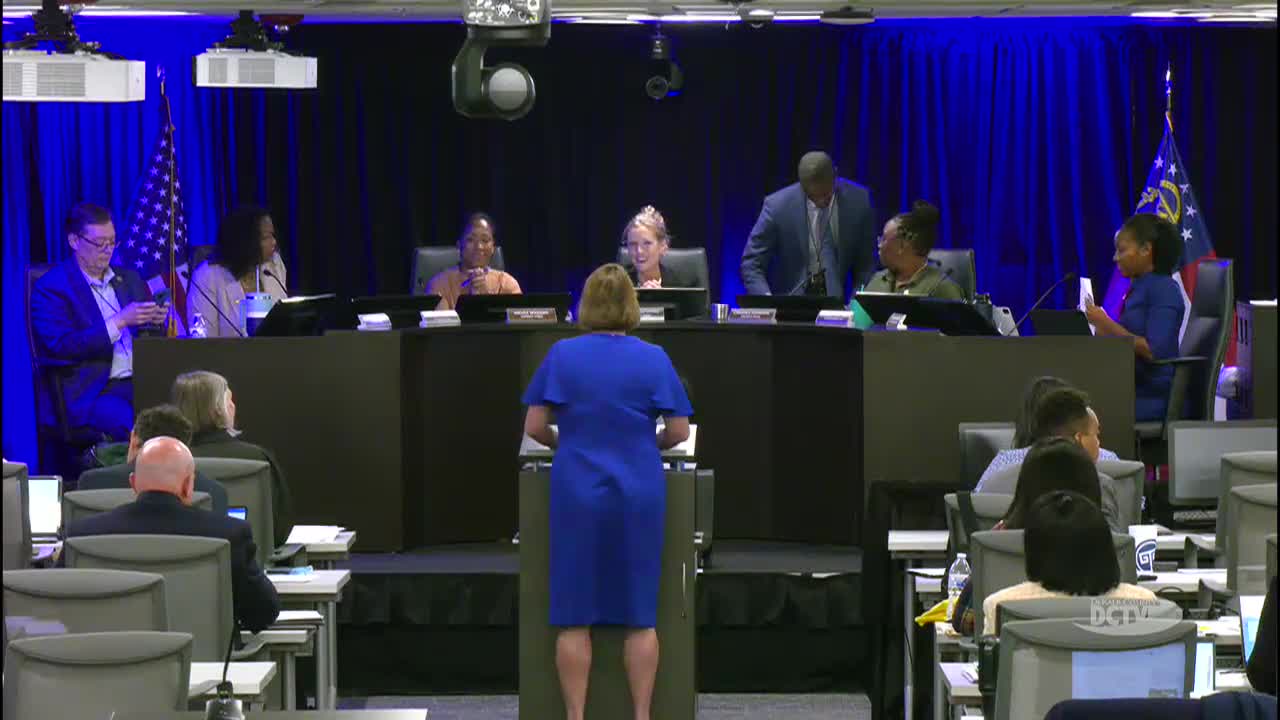Article not found
This article is no longer available. But don't worry—we've gathered other articles that discuss the same topic.

DeKalb Public Health presents 'Health of DeKalb 2025', highlights disparities and staffing, funding shortfalls

Commissioner Ted Terry proposes 100-day moratorium on new data centers; colleagues send item to PECS committee

